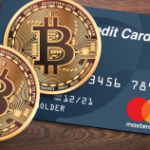75 of the world’s biggest banks are turning to the Interbank Information Network (IIN) a blockchain payments platform to fight the threat of new payments rivals in what will be the regulated banking industry’s largest application of the distributed ledger technology.

Major global banks go mainstream on blockchain payments with Interbank Information Network
More than 70 additional banks, including Société Générale and Santander, are joining the Interbank Information Network which JPMorgan, Royal Bank of Canada and ANZ have been trialling for 11 months to see if blockchain payments technology can speed up payments that have errors or require additional compliance checks.
The idea is that a mutually-accessible ledger across banks would allow them to quickly resolve issues such as compliance checks, faulty addresses or missing data, which can lead to payments being held up for weeks.
The banks expect to put about 14,500 US dollar-denominated payments a day through the enlarged network. “Payment is one of the segments banks worry most about in terms of ceding to non-bank competition,” said Jason Goldberg, banks analyst at JPMorgan. “Blockchain is a way to keep more of that (payments business) in-house.”
There is no comprehensive data on how much market share has been won by payments start-ups leveraging technology to offer cheaper services,but individual players have achieved significant scale, including TransferWise, which processes more than £3 billion every month.
Emma Loftus, global head of global payments and receivables at JPMorgan Treasury Services, said the IIN would help protect their businesses. “One of the complaints that the non-banks have been pointing out [relates to] these frictional processes in the existing cross-border payment mechanism,” she said. “Given that things like blockchain are addressing some of these age-old problems, we’re able to solve the problems ourselves.”
Ms Loftus said only a “small percentage” of total payments instructions get held up but it can take up to two weeks to resolve any issues, making it a “significant pain point” for clients. Simple cross-border payments can involve a chain of three or four banks, because banks can only send payments directly to other banks who they have “correspondent” relationships with.
When the instruction has missing or faulty information, or banks have to make additional compliance checks, they have to send queries back through the payments chain, bank by bank, until it reaches someone who has the information and can send it back along the same path.
Accessing all the information through the blockchain creates a distributed ledger that all banks can query in real time, allowing for near-instant resolution of issues. The Interbank Information Network also facilitates secure peer-to-peer messaging.
The number of transactions put through the Interbank Information Network will expand exponentially as the number of participating banks increases. JPMorgan plans to continue adding banks, and also hopes to expand the IIN offering into other payments in non-US currencies. “If you look at it (IIN) in terms of what blockchain applications are live, there are very few and most of them are either in pilot or proof of concept stage,” comments Umar Farooq, head of blockchain at JPMorgan.





